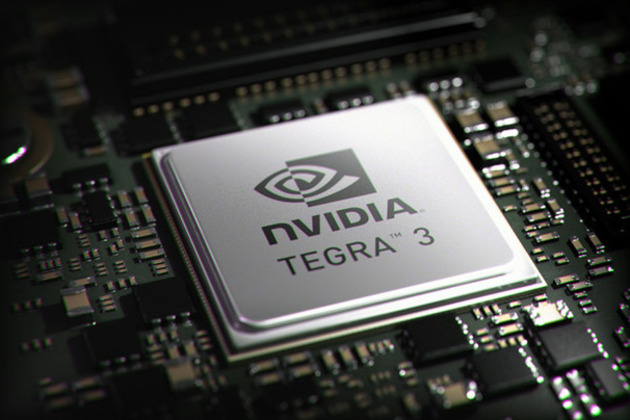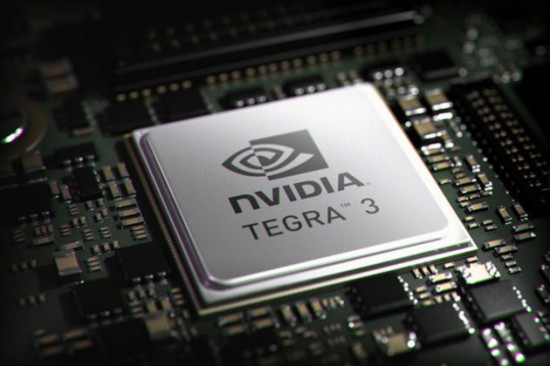The next start of the next generation of smartphones, tablets and other mobile devices is here, and it comes in the form of a new Quad-Core processor from Nvidia.
Chip manufacturer Nvidia has officially unveiled the Tegra 3 chip, which has previously gone under the codename of the ‘Kal-el’. The number of cores jumps from 2 to 4 from the Tegra 2, and Nvidia says the jump in performance is by five times.
The Tegra 3 chip consists of four Cortex A9 cores, each clocked at 1.3GHz, with 12 cores of graphics processing. Nvidia says this will triple the quality of graphics when compared to mobile devices that use the Tegra 2 dual-core chipset.
There is also a fifth core to the processor which is designed to take care of things when the mobile device is in standby or low-power modes. This core is named the “companion core” and will help improve the battery life of devices that utilise the Tegra 3. So despite the extra power from having a Quad-Core processor, the next generation of devices to use it will in fact have a better battery life than the current range on the market.
The companion core will take care of low-power tasks such as music playback, while the more powerful four cores will take over to deal with applications such as games, taking speeds up to 1.3GHz when working together, while a single core can run at 1.4GHz.
Devices running the Tegra 3 chip will be capable of ‘Blu-Ray quality video’ at 1080p quality, with HD quality audio and 7.1 channel surround sound support. The chip also brings the capability to capture images up to twice as fast, while storage speeds will be improved, meaning saving files and transferring content to a memory card could take much less time.
We’ll see the advantages of Nvidia’s Tegra 3 chip inside the new ASUS Transformer Prime tablet, which will be the first device to use the chip, going on sale this December.
It would also seem that HTC has plans to utilise the Tegra 3 in a new smartphone that we currently know as the ‘HTC Edge’.
We’re excited for new smartphones and tablets that are both more powerful and last longer, are you?
Let us know your thoughts on our comments below or via our @Gadget_Helpline Twitter page or Official Facebook group.


